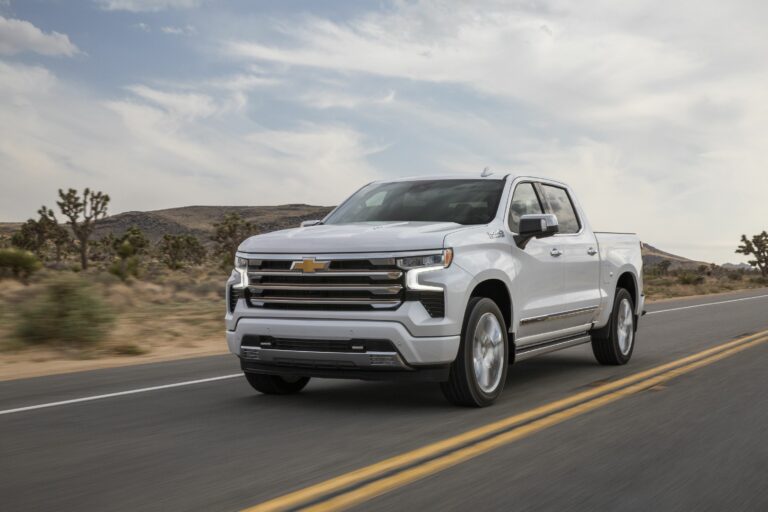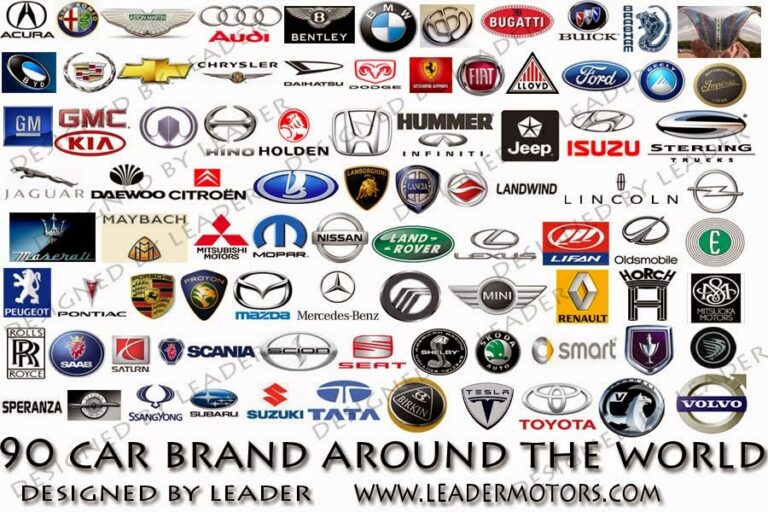Brand New Car Deals: Your Comprehensive Guide to Driving a Bargain
Brand New Car Deals: Your Comprehensive Guide to Driving a Bargain cars.truckstrend.com
The allure of a brand new car is undeniable: that pristine smell, the latest technology, and the peace of mind that comes with a full warranty. But for many, the sticker price can be daunting. This is where "Brand New Car Deals" come into play – a critical aspect of the automotive market that transforms aspirational purchases into attainable realities. Far more than just a simple discount, these deals encompass a complex array of incentives, financing options, and strategic timings designed to make new vehicles more accessible and appealing to a wider range of buyers. Understanding and leveraging these deals is not merely about saving money; it’s about making an informed decision that aligns with your financial goals and driving needs.
In a dynamic market influenced by manufacturing cycles, economic shifts, and consumer demand, manufacturers and dealerships continually offer various incentives to move inventory. From cash rebates and low-interest financing to attractive lease programs and special discounts, these deals are the keys to unlocking significant savings and enhancing the value of your new car purchase. This comprehensive guide will navigate the intricate world of brand new car deals, empowering you with the knowledge and strategies to secure the best possible agreement.
Brand New Car Deals: Your Comprehensive Guide to Driving a Bargain
Understanding the Landscape of Brand New Car Deals
Before diving into specific deal types, it’s crucial to grasp the fundamental elements that constitute a "deal" in the new car market. A deal isn’t just a markdown; it’s a combination of factors that reduce the total cost of ownership or lower monthly payments.
- MSRP vs. Invoice Price: The Manufacturer’s Suggested Retail Price (MSRP) is the window sticker price. The invoice price is what the dealer allegedly paid the manufacturer. While dealers rarely sell below invoice, understanding this difference provides a negotiation baseline.
- Rebates and Incentives: These are direct payments or price reductions offered by the manufacturer to the customer or dealer. They are often the most straightforward way to save money.
- Special Financing: Manufacturers subsidize interest rates (e.g., 0% APR) to make monthly payments more affordable.
- Lease Offers: These involve lower monthly payments and often smaller down payments than purchasing, but you don’t own the car at the end of the term.
- Market Dynamics: Supply and demand, economic conditions, and manufacturer sales targets heavily influence the generosity of available deals. When inventory is high or sales targets are lagging, deals tend to be more aggressive.

Types of Brand New Car Deals
New car deals come in various forms, each offering distinct advantages depending on your financial situation and driving habits. Understanding these categories is the first step toward finding the perfect deal for you.
1. Cash Back / Rebates
These are straightforward cash incentives offered directly by the manufacturer to the buyer. They reduce the overall purchase price of the vehicle.
- Pros: Immediate savings, can be combined with other dealer discounts.
- Cons: Might preclude eligibility for special financing offers (often an either/or choice).
2. Low-Interest Financing (APR Deals)

Manufacturers often subsidize interest rates, offering rates as low as 0% APR for qualified buyers over a set term (e.g., 36, 48, 60 months).
- Pros: Significant savings on interest charges over the loan term, leading to lower total cost.
- Cons: Typically requires excellent credit; often cannot be combined with cash rebates.
3. Lease Deals
Leasing involves paying for the depreciation of the vehicle over a set period (e.g., 24, 36 months) rather than the full purchase price. Deals often feature low monthly payments and attractive down payments.
- Pros: Lower monthly payments, less money down, always driving a new car with the latest features, warranty coverage throughout the lease.
- Cons: Mileage restrictions, wear and tear charges, no equity ownership, potential fees at lease end.
4. Dealer Discounts / Negotiation
Beyond manufacturer incentives, dealerships themselves can offer discounts off the MSRP. This is where your negotiation skills come into play. Dealers have margins and are often willing to reduce prices to meet sales quotas or clear inventory.
- Pros: Direct reduction in purchase price, flexibility in negotiation.
- Cons: Requires effective negotiation; varies widely between dealerships.
5. Special Programs and Incentives
Many manufacturers offer niche incentives for specific groups:
- Military Programs: Discounts for active service members, veterans, and sometimes their families.
- College Graduate Programs: Rebates or special financing for recent graduates.
- Loyalty Programs: Incentives for existing owners of the brand to purchase another vehicle from the same manufacturer.
- Conquest Programs: Incentives for owners of a competitor’s vehicle to switch brands.
- Employee Pricing/Friends & Family: Special pricing negotiated through employer affiliations.
6. Bundle Deals
Sometimes, a deal might include more than just the car itself, such as free scheduled maintenance for a certain period, accessory packages, or extended warranty discounts.
- Pros: Added value beyond the vehicle’s price.
- Cons: Ensure the bundled items are truly valuable to you and not just inflated extras.
When to Find the Best Brand New Car Deals
Timing is a critical factor in securing the most advantageous new car deals. Dealers and manufacturers operate on specific sales cycles that create prime opportunities for buyers.
- End of the Month/Quarter/Year: Salespeople and dealerships have quotas. As these deadlines approach, they are often more motivated to offer aggressive deals to hit their targets. The last few days of December are historically the best time to buy a car due to year-end sales goals and model year clearouts.
- Model Year Changeovers: When new model years arrive (typically in late summer/early fall), dealerships want to clear out the previous year’s inventory. This is an excellent time to find deals on the outgoing model, which might be nearly identical to the new one but significantly cheaper.
- Holidays: Major holidays like President’s Day, Memorial Day, Fourth of July, Labor Day, and Black Friday are synonymous with special sales events, often featuring enhanced rebates and financing offers.
- During Economic Downturns: While not ideal for everyone, periods of economic uncertainty can lead to reduced consumer demand, prompting manufacturers and dealers to offer more substantial incentives to stimulate sales.
- When a New Redesigned Model is Introduced: If a car model is undergoing a significant redesign, the outgoing version will likely be heavily discounted to make way for the new one.
How to Secure the Best Brand New Car Deals: A Step-by-Step Guide
Navigating the car-buying process can be complex, but a strategic approach can lead to substantial savings.
-
Thorough Research is Key:
- Vehicle & Trim: Identify the exact make, model, and trim level you want. Know the features you need versus those you just desire.
- Market Pricing: Research the MSRP, invoice price, and average transaction price for your chosen vehicle. Websites like Edmunds, Kelley Blue Book (KBB), and TrueCar provide valuable pricing data.
- Available Incentives: Check manufacturer websites for current rebates, special financing rates, and lease offers in your region.
-
Understand Your Budget & Total Cost of Ownership:
- Don’t just focus on the monthly payment. Calculate the total purchase price, including taxes, fees, and any add-ons.
- Factor in long-term costs: insurance, fuel, maintenance, and potential depreciation.
-
Get Pre-Approved for Financing:
- Secure a loan pre-approval from your bank or credit union before visiting the dealership. This gives you a benchmark interest rate and empowers you to negotiate the car price separately from the financing.
- It also allows you to walk into the dealership as a cash buyer, which can strengthen your negotiation position.
-
Master Negotiation Strategies:
- Be Informed: Knowledge of market prices and current incentives is your strongest tool.
- Negotiate the Price First: Focus on the "out-the-door" price of the car before discussing your trade-in or financing.
- Leverage Competition: Get quotes from multiple dealerships (in-person, online, or via email). Use these competing offers to drive down the price.
- Be Prepared to Walk Away: This is your ultimate power. If you don’t feel you’re getting a good deal, be ready to leave.
- Stay Firm but Polite: Maintain a respectful demeanor, but don’t be afraid to ask for what you want.
-
Test Drive Thoroughly:
- Ensure the car meets your expectations in terms of comfort, performance, and features. Drive it on various road types.
-
Read the Fine Print:
- Before signing anything, meticulously review the purchase agreement, loan documents, and any lease contracts. Look for hidden fees, inflated add-ons, or unfavorable terms. Don’t rush this step.
Important Considerations Beyond the Price Tag
While securing a great deal on the purchase price is vital, a truly smart car deal encompasses more than just the initial discount.
- Total Cost of Ownership (TCO): Beyond the sticker price, consider fuel efficiency, insurance costs for that specific model, routine maintenance schedules and costs, and projected depreciation. A cheaper car upfront might be more expensive to own over five years.
- Warranty and Service Packages: Understand what the standard warranty covers and for how long. Be cautious of extended warranties or service packages that significantly inflate the price unless you’ve thoroughly researched their value and determined they are necessary for your peace of mind.
- Resale Value: Some cars hold their value better than others. Researching future depreciation can help you minimize your long-term cost.
- Add-ons and Extras: Dealerships often try to upsell paint protection, fabric guards, VIN etching, or nitrogen in tires. Most of these have high markups and offer questionable value. Decline them unless you’ve specifically researched and decided they are worth the cost.
- Credit Score Impact: Your credit score significantly impacts the interest rate you qualify for. Ensure your credit is in good shape before applying for loans.
Common Pitfalls to Avoid
- Focusing Only on Monthly Payments: Dealerships often try to steer buyers towards monthly payment discussions. This can obscure the actual total price and lead to longer loan terms or higher interest rates than necessary.
- Not Getting Pre-Approved for Financing: Without pre-approval, you lose leverage and might accept a higher interest rate from the dealership.
- Ignoring Your Trade-In Until the End: Discuss your trade-in as a separate transaction after you’ve agreed on the price of the new car. Otherwise, the dealer might give you a good price on the new car but lowball your trade-in.
- Falling for High-Pressure Tactics: Don’t let a salesperson rush you or make you feel guilty for not buying immediately. A good deal won’t disappear in an hour.
- Not Reading the Contract Thoroughly: Always read every line of the contract before signing. Verify that all agreed-upon terms, prices, and fees are accurately reflected.
Illustrative Brand New Car Deals Table
Below is an illustrative table demonstrating how different types of deals could impact the hypothetical purchase of a new car. Note: These are purely examples and do not reflect real-time market offers.
| Deal Type / Scenario | MSRP (Hypothetical) | Manufacturer Rebate | Dealer Discount | Special APR (Qualified) | Total Savings/Benefit | Effective Purchase Price / Lease Terms (Approx.) | Notes |
|---|---|---|---|---|---|---|---|
| Baseline Purchase | $30,000 | $0 | $0 | 5.0% (Standard) | $0 | $30,000 + Interest (e.g., $2,000 over 60 mo) | No specific deal applied, standard loan. |
| Cash Rebate Deal | $30,000 | $2,500 | $1,000 | 5.0% (Standard) | $3,500 | $26,500 + Interest (e.g., $1,750 over 60 mo) | Direct reduction in purchase price. Often excludes special APR. |
| Low APR Financing Deal | $30,000 | $0 | $1,000 | 0.9% (60 months) | ~$2,500 (Interest) | $29,000 + Minimal Interest (e.g., $600 over 60 mo) | Significant savings on interest. Requires excellent credit. |
| Aggressive Dealer Discount | $30,000 | $0 | $3,000 | 5.0% (Standard) | $3,000 | $27,000 + Interest (e.g., $1,800 over 60 mo) | Pure negotiation-based discount. |
| Lease Deal (36 mo) | $30,000 | $0 | N/A | N/A | N/A | $299/month (with $1,999 down) | Lower monthly payments, no ownership at term end, mileage limits. |
| Combined Deal | $30,000 | $1,500 | $1,500 | 3.9% (60 months) | ~$2,000 (Rebate+Disc) + ~$1,200 (Interest) | $27,000 + Reduced Interest (e.g., $1,200 over 60 mo) | Best of both worlds, but not always available. Check eligibility carefully. |
Frequently Asked Questions (FAQ) about Brand New Car Deals
Q1: What’s the difference between MSRP and invoice price?
A1: MSRP (Manufacturer’s Suggested Retail Price) is the sticker price. The invoice price is what the dealer paid the manufacturer for the car. While you usually won’t buy below invoice, knowing it gives you a negotiation baseline. Dealers make money from various sources, including holdback, volume bonuses, and financing commissions.
Q2: When is the absolute best time to buy a new car?
A2: Generally, the end of the month, quarter, or year (especially December) is ideal. Dealers are eager to meet sales quotas, leading to more aggressive deals. Also, look for deals when new model years arrive (late summer/early fall) to clear out the previous year’s inventory.
Q3: Should I lease or buy a new car?
A3: It depends on your needs.
- Leasing is good if you want lower monthly payments, enjoy driving a new car every few years, don’t drive many miles, and prefer consistent warranty coverage.
- Buying is better if you plan to keep the car for a long time, drive a lot, want to build equity, and prefer full ownership.
Q4: How important is my credit score for getting a good deal?
A4: Extremely important. Your credit score directly impacts the interest rate you qualify for on a loan. A higher score (typically 700+) will give you access to the best low-APR financing deals offered by manufacturers. A lower score will result in higher interest rates, significantly increasing your total cost.
Q5: Can I negotiate on a "no-haggle" price?
A5: "No-haggle" dealerships typically offer fixed, transparent pricing upfront. While the sticker price itself isn’t negotiable, you can still try to negotiate the value of your trade-in or the price of additional services like extended warranties. Always compare their "no-haggle" price with market prices for similar vehicles to ensure it’s truly competitive.
Q6: What’s the difference between a manufacturer rebate and a dealer discount?
A6: A manufacturer rebate is an incentive offered by the car manufacturer directly to the customer or the dealership to stimulate sales. It’s often a fixed amount of cash back or a special low APR. A dealer discount is a reduction in price offered by the dealership itself from its own profit margin. You can often combine manufacturer rebates with dealer discounts, but manufacturer special APR deals usually cannot be combined with rebates.
Q7: Should I tell the dealer I have a trade-in upfront?
A7: It’s generally advised to keep the trade-in discussion separate until you’ve negotiated and agreed on the price of the new car. If you bring it up too early, the dealer might inflate the new car’s price while giving you a seemingly good trade-in value, or vice-versa, making it harder to see the true cost of each transaction.
Conclusion
Securing a brand new car deal is an art form that blends meticulous research, strategic timing, and confident negotiation. It’s about empowering yourself with knowledge and understanding that the sticker price is merely a suggestion, not a fixed ultimatum. By dissecting the various types of deals, understanding the optimal times to buy, and employing smart negotiation tactics, you can transform the often-stressful process of car buying into a rewarding experience.
Remember, the best deal isn’t always the lowest price; it’s the one that best fits your budget, needs, and long-term financial goals. Take your time, do your homework, and don’t be afraid to walk away if the terms aren’t right. With this comprehensive guide, you are now equipped to navigate the exciting world of brand new car deals and drive away with confidence, knowing you’ve secured a truly great value.






